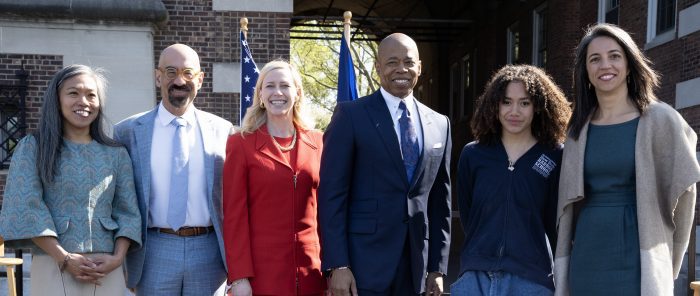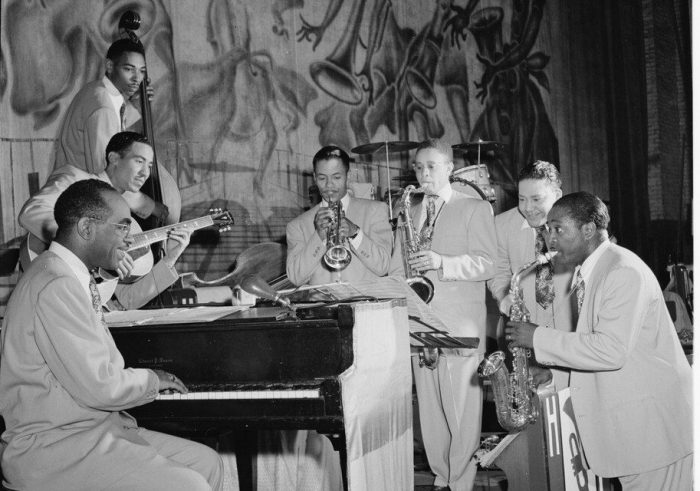Climate change often conjures images of violent storms, rising sea levels and endangered animals.
Scientists around the world warn so often about the dangers to our one and only planet that some couples have decided to hold off — or even not — have children among all the future anxiety.
Amid all that worry, however, New York City, the Trust for Governors Island, Stony Brook University and a team of other universities, nonprofits and businesses are working on the kind of solutions that could lead to a better future.
On a sun-splashed Monday morning at Governors Island just off the southern tip of Manhattan, Mayor Eric Adams (D), SBU President Maurie McInnis, Simons Foundation President David Spergel and a host of other luminaries discussed a new $710 million center for climate solutions, which Stony Brook as the anchor institution has called the New York Climate Exchange.
With $100 million in backing from the Simons Foundation, $50 million from Bloomberg Philanthropies and $150 million from New York City, the center will serve a host of important functions, including retraining 6,000 workers a year for jobs in the green energy sector, providing incubator space for businesses that are working on climate solutions and educating children from kindergarten through 12th grade.
In addition to the huge win for Stony Brook, which competed against other high-powered public and private universities for this coveted lead role, the effort could be a victory for New York, the surrounding mid-Atlantic states, the country and the planet.
Near the Statue of Liberty, which is a beacon of hope for democracy and an iconic symbol of the country, the Governors Island effort can come up with solutions and alternatives to a doom-and-gloom scenario while also sparking a commitment from students eager to find an outlet for their energy and creativity.
Will the center on its own help the world avoid the 1.5 degrees Celsius increase in temperature from the pre-Industrial Revolution days that scientists often point to as a tipping point for the planet?
Absolutely not. That’s up to everyone from government and state leaders to huge companies and even individuals in the U.S. and throughout the world.
What the climate center, which will be completed in 2028 and will generate its own electric power without adding greenhouse gasses, will do is encourage dialogue with everyone, offer hope and provide a place for the best and brightest minds to develop answers to some of the world’s most troubling questions.
Coming just a few days after Earth Day, that is worth celebrating.














